Introduction
Property management and real estate investing are rewarding fields, but they come with significant legal responsibilities. One of the biggest challenges landlords, property managers, and letting agents face is the constant evolution of tenancy laws.
Regulations around rental agreements, tenant rights, eviction rules, deposit protection, and fair housing are updated frequently — often varying by country, state, or even city. Failing to comply can result in fines, lawsuits, or reputational damage.
So, how do professionals keep pace with these shifting regulations? This guide explores practical strategies for staying compliant and protecting both your business and your tenants.
Why Staying Updated on Tenancy Laws Matters

- Legal Compliance
Landlords must operate within the framework of housing and tenancy law. Missing a key update could invalidate contracts or cause disputes. - Protecting Tenants’ Rights
Updated knowledge ensures tenants are treated fairly regarding rent increases, repairs, notice periods, and eviction procedures. - Avoiding Financial Penalties
Non-compliance often leads to hefty fines. For example, failing to protect deposits within the legal timeframe can cost landlords thousands. - Building Trust
Tenants prefer landlords who demonstrate professionalism by following the law. Compliance builds stronger, long-term relationships. - Staying Competitive
With new sustainability and energy-efficiency laws emerging, compliance can make properties more attractive to modern tenants.
Challenges in Keeping Up with Tenancy Law Changes
- Fragmented Jurisdictions
Laws differ by state, region, or city. What’s legal in one area may be illegal in another. - Frequent Updates
Tenancy law evolves constantly — from rent control measures to eviction moratoriums during crises like COVID-19. - Complex Legal Language
Regulations are often written in dense legal terms, making them hard for non-lawyers to interpret. - Information Overload
With multiple sources (government websites, industry associations, legal notices), it’s difficult to track what’s truly relevant. - Balancing with Day-to-Day Operations
Landlords often juggle maintenance, tenant communication, and finances, leaving little time for law research.
Practical Ways to Stay Informed
1. Subscribe to Government Housing Authority Updates
- Most housing departments maintain official websites with newsletters or alerts.
- Example: The UK’s Ministry of Housing or U.S. state housing authority websites.
- Pros: Reliable, direct source.
- Cons: Often only provide raw legal text with limited interpretation.
2. Join Landlord Associations & Professional Bodies
- Organizations like the National Landlords Association (NLA) or National Association of Residential Property Managers (NARPM) provide regular briefings.
- Membership perks: Legal helplines, training sessions, and policy updates.
- Benefit: Simplifies complex changes into actionable advice.
3. Consult Legal Advisors
- Partner with real estate attorneys or specialist tenancy lawyers.
- Valuable for interpreting complex clauses, eviction rules, or dispute handling.
- Costly, but essential for large portfolios or high-risk situations.
4. Use Property Management Software with Compliance Alerts
- Many modern systems integrate compliance monitoring.
- Examples: Buildium, AppFolio, or Arthur (UK).
- Automated alerts for deadlines (deposit protection, inspection dates, licensing renewals).
5. Follow Industry Blogs, Forums & News Outlets
- PropertyWire, HousingWire, or local landlord forums.
- Provide commentary, real-world case studies, and simplified explanations.
6. Attend Training & Webinars
- Professional training organizations offer CPD (Continuing Professional Development) courses on tenancy law.
- Webinars and seminars allow live Q&A with experts.
7. Networking with Other Landlords
- Peer discussions (online communities, local meetups) highlight practical impacts of legal changes.
- Example: Landlord forums sharing how they adapted to eviction bans.
8. Monitor Court Cases & Precedents
- Landmark rulings often redefine how tenancy laws are applied.
- Legal newsletters can help landlords track precedent-setting cases.
Example: Deposit Protection Laws
Consider the deposit protection law in the UK:

- Landlords must place a tenant’s deposit in a government-approved scheme within 30 days.
- Failing to do so can result in repayment up to 3x the deposit amount.
A landlord who misses this update risks thousands in penalties. By subscribing to an NLA newsletter or using property management software, landlords receive reminders that prevent such costly mistakes.
Example: Eviction Moratoriums During COVID-19
In 2020–2021, many countries introduced emergency laws suspending evictions. Landlords relying only on old legislation risked unlawful eviction attempts. Those who stayed updated via housing authority sites and associations avoided legal trouble.
Advanced Strategies for Staying Compliant
1. Establish a Compliance Calendar
- Create a legal compliance calendar to track important deadlines:
- Lease renewals
- Safety inspections (gas, electrical, fire alarms)
- Deposit scheme submissions
- Use calendar reminders or task management apps to avoid missing legal obligations.
2. Assign a Compliance Officer or Property Manager
- For landlords with multiple properties, designate one person (internal or external) to monitor legal changes and implement them consistently.
3. Automate Where Possible
- Property management software can automatically:
- Flag overdue inspections
- Update tenants on changes to agreements
- Store digital records for audits
4. Build Relationships with Local Authorities
- Attend town hall meetings, housing consultations, and community landlord forums.
- Having direct connections with local regulators gives early insight into upcoming legislation.
5. Continuing Education
- Complete certified training programs each year.
- Many regions now make ongoing training mandatory for licensed property managers.
Leveraging Technology to Stay Ahead
Modern landlords are increasingly turning to digital solutions for compliance management.
1. AI-Powered Legal Monitoring
- Some AI platforms scan government sites, legal journals, and housing blogs to provide summarized legal updates.
- Saves time by filtering out irrelevant changes.
2. Compliance Dashboards in PMS (Property Management Software)
- Tools like Buildium, AppFolio, or MRI Software include dashboards that show:
- License status
- Document validity
- Pending legal requirements
3. Mobile Alerts
- Apps send push notifications for new tenancy rules in your area.
- Ideal for small landlords managing on the go.
4. Document Automation
- Use e-signature and document storage tools to ensure tenancy agreements always reflect the latest legal clauses.
Case Studies
Case Study 1: Small Landlord Adapts to Energy Efficiency Standards
A UK landlord with three properties struggled to track changing EPC (Energy Performance Certificate) requirements. After subscribing to an NLA compliance tool, they received reminders and guides, upgrading properties before penalties applied.
Case Study 2: Property Manager Navigates Eviction Ban
During the COVID-19 eviction moratorium, a U.S. property manager stayed compliant by attending weekly webinars hosted by the local housing authority. They avoided unlawful evictions and built tenant goodwill by offering alternative payment plans.
Case Study 3: Enterprise Portfolio with Automation
A real estate firm managing 200+ units adopted H2O.ai-powered monitoring for tenancy law changes across states. The system alerted them to a new rent control regulation in one jurisdiction, allowing them to update leases before enforcement.
Conclusion
Tenancy laws are complex, fragmented, and constantly evolving — but staying updated is non-negotiable.
Key takeaways:
- Use multiple sources (government, associations, legal experts) to stay informed.
- Adopt technology — compliance calendars, property management software, AI monitoring.
- Build networks with peers and local authorities for early insights.
- Treat compliance not as a burden, but as a way to protect tenants, safeguard income, and strengthen reputation.

Landlords and property managers who make legal awareness part of their routine not only stay safe from fines but also gain a competitive edge in an increasingly regulated market.
FAQs
1. How often do tenancy laws change?
It depends on the jurisdiction, but expect at least annual updates, with emergency laws (like eviction bans) happening more frequently.
2. Do I need a lawyer to interpret every change?
Not always. Associations and property management software simplify most updates. Lawyers are useful for complex cases or disputes.
3. Can software replace human oversight in compliance?
No. Software automates alerts and reminders, but landlords still need to interpret and apply laws correctly.
4. What’s the biggest risk of ignoring tenancy law changes?
Penalties include fines, legal disputes, loss of license, and even invalidation of tenancy agreements.
5. Are there global tenancy law standards?
No. Laws vary widely by country, state, and city. Always check your local housing authority first.
6. Should small landlords bother with associations?
Yes. Even single-property landlords benefit from legal updates, networking, and training opportunities provided by associations.

